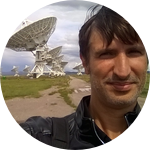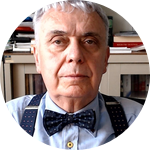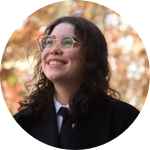About This Project
STRATOSPOLCA (STRATOSpheric POLarimetry with Cadmium Telluride Array) is a student team from Portugal participating in the BEXUS programme. The BEXUS programme allows university students to fly scientific and technological experiments on research rballoons.
Our experiment will measure the background noise-level of gamma-ray as a function of the altitude and the multiplicity of the events, so that future experiments and simulations can benefit from this data to improve their statistics.
Ask the Scientists
Join The DiscussionWhat is the context of this research?
High-energy polarimetry provides a deep understanding of the physical processes, geometry and magnetic fields of sources such as neutron stars, pulsars or black holes. So far, only a few and limited high-energy polarimetric measurements with workable data have been executed, being the most trustworthy measurements obtained recently by polarimeter POLAR.
With STRATOSPOLCA we aim at improving the knowledge of background radiation in altitude so that future detectors can be tested and, by knowing this background values, you can improve the signal to noise ratio.
What is the significance of this project?
When an experiment wants to study a celestial body, detecting the radiation of this body also detects the radiation from everything else. Knowing this background radiation we can filter it and study only the body of our interest.
Our experiment will measure the background noise-level of gamma-ray as a function of the altitude and the multiplicity of the events, so that future experiments and simulations can benefit from this data to improve their statistics.
The experiment will fly in a stratospheric balloon from the BEXUS programme.
What are the goals of the project?
We'll use a gamma ray detector that will fly on a stratospheric balloon. Our main goals is to measure the level of single, double and multiple events, drawing a profile of such events as a function of the altitude. We will also measure the energy of the interactions.
Pre-flight simulations will be programmed in order to acknowledge what data we expect to obtain and to calibrate the instrumentation.
We'll also test our isolation with a inexpensive alternative to the ones commonly used, and if it proves successful it will be an innovation in the area.
Budget
We will need to transport our experiment from our labs in Coimbra (Portugal) to the launching site in Kiruna (Sweden) as well as other materials (to test our experiment), a radioactive source and one of our teammates to the launching site.
We will also need Electronics and a Microcontroller FPGA.
We also intend to present our results in multiple Conferences and Symposiums, like IEEE. This funding will help offset the costs of conference registration and associated travel expenses.
Endorsed by
 Project Timeline
Project Timeline
In 2019 we decided to apply for the REXUS/BEXUS programme, respectively, in the BEXUS modality. After participating in the Selection process in November, our project was one of those selected with the scheduled flight date in September/October 2021.
Jul 30, 2021
Project Launched
Aug 25, 2021
Final Experiment Preparations
Sep 24, 2021
Start of the launching campaign
Oct 04, 2021
End of the launching campaign
Dec 31, 2021
Data analysis and Reporting
Meet the Team
Team Bio
We are a student team from the University of Coimbra, Portugal. Our members are from different background as Mechanical Engineering, Physics, Electrical and Computer Engineering, Chemical Engineering, and Medicine.
We are participating in the BEXUS programme with a gamma-ray detector.
Inês Oliveira
Currently studying for a degree in Physics, in University of Coimbra, Portugal.
Lab Notes
Nothing posted yet.
Project Backers
- 11Backers
- 5%Funded
- $170Total Donations
- $15.45Average Donation


